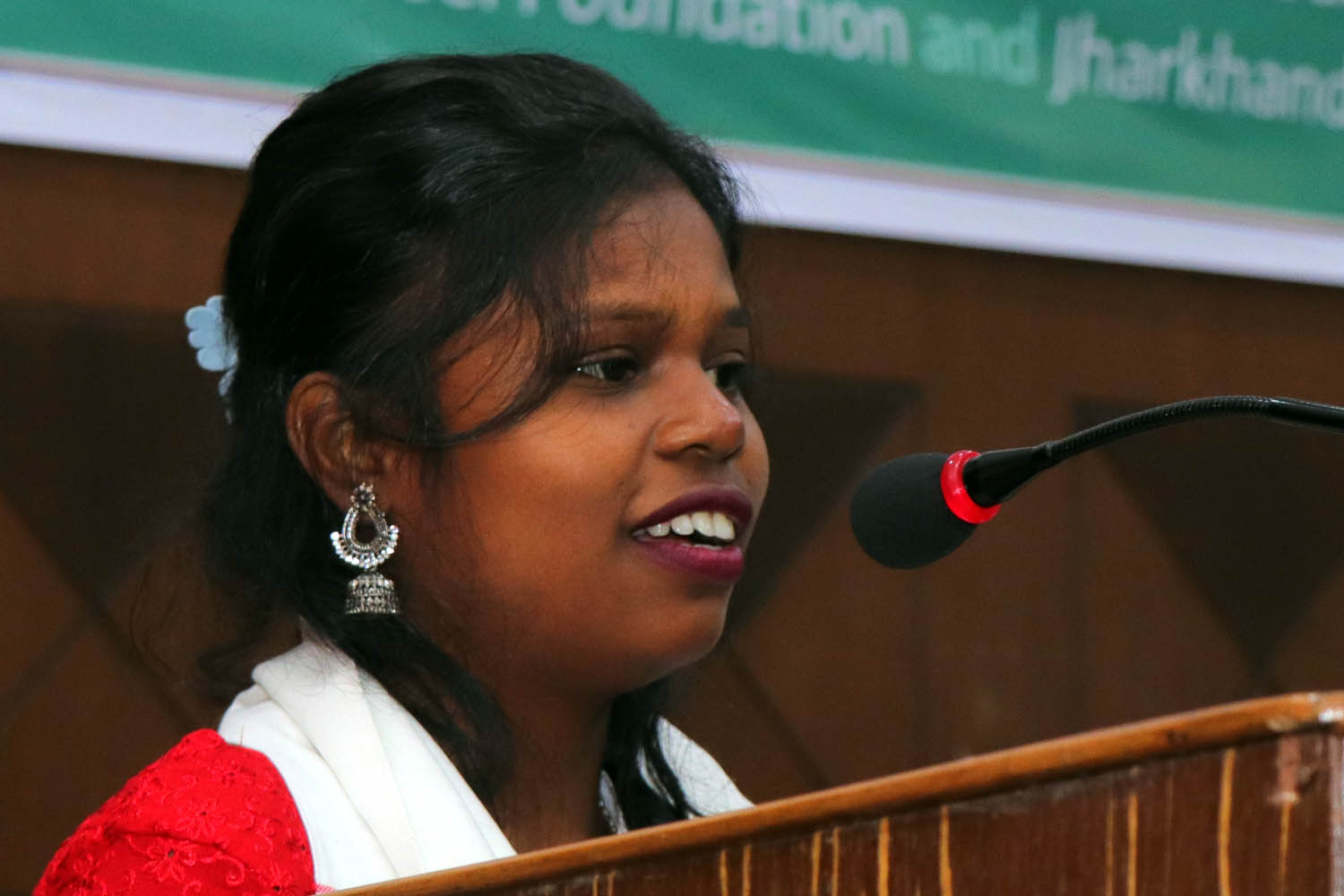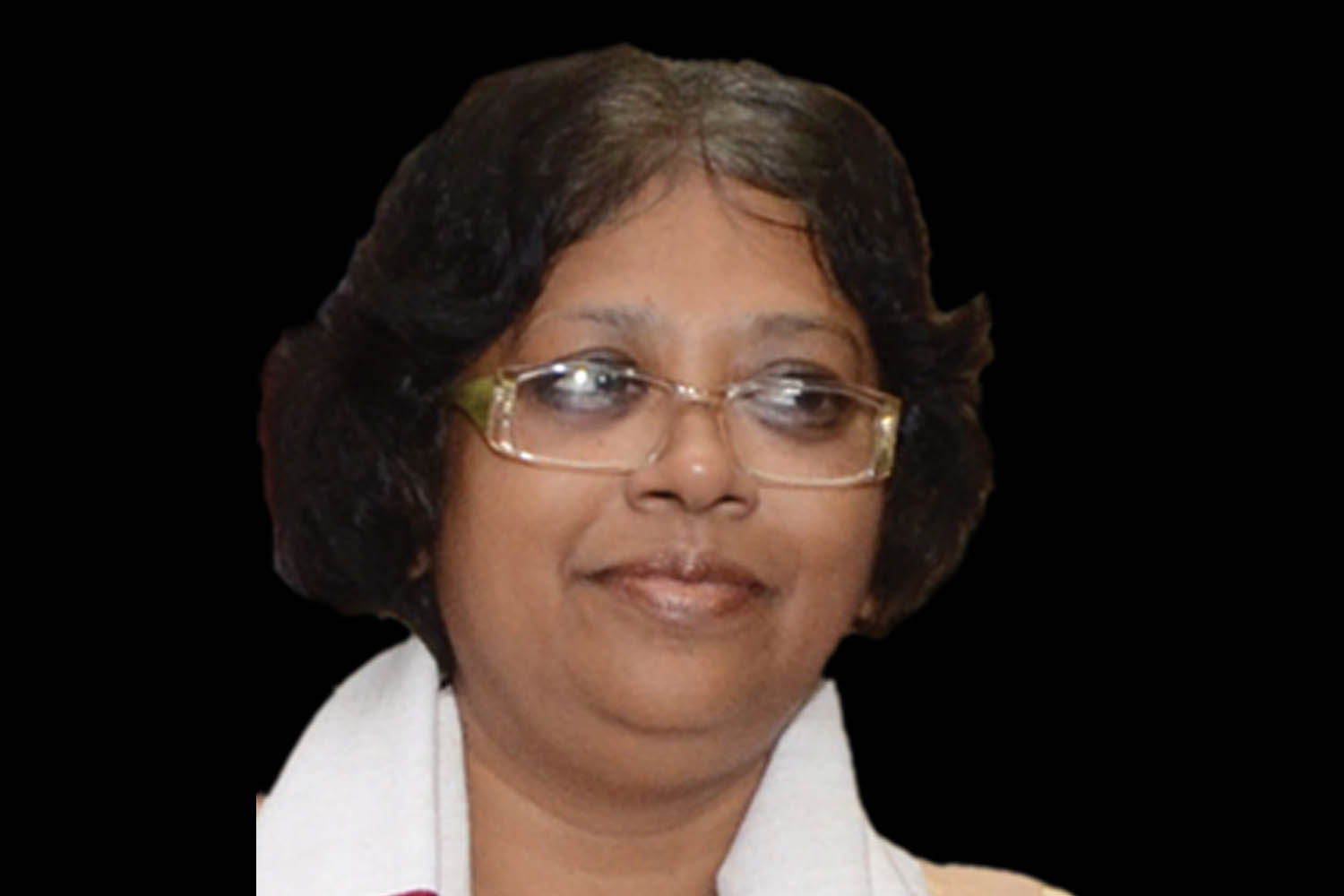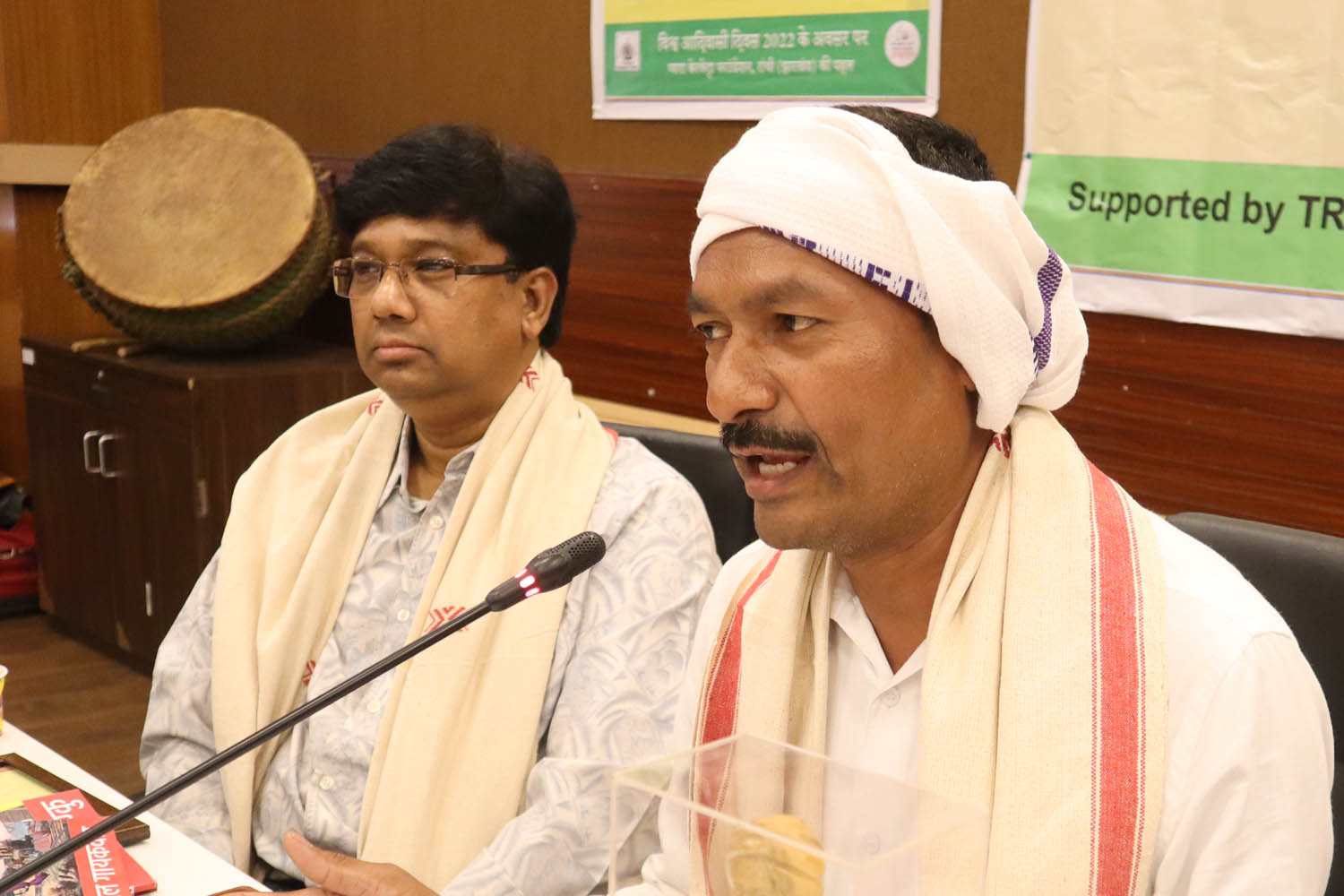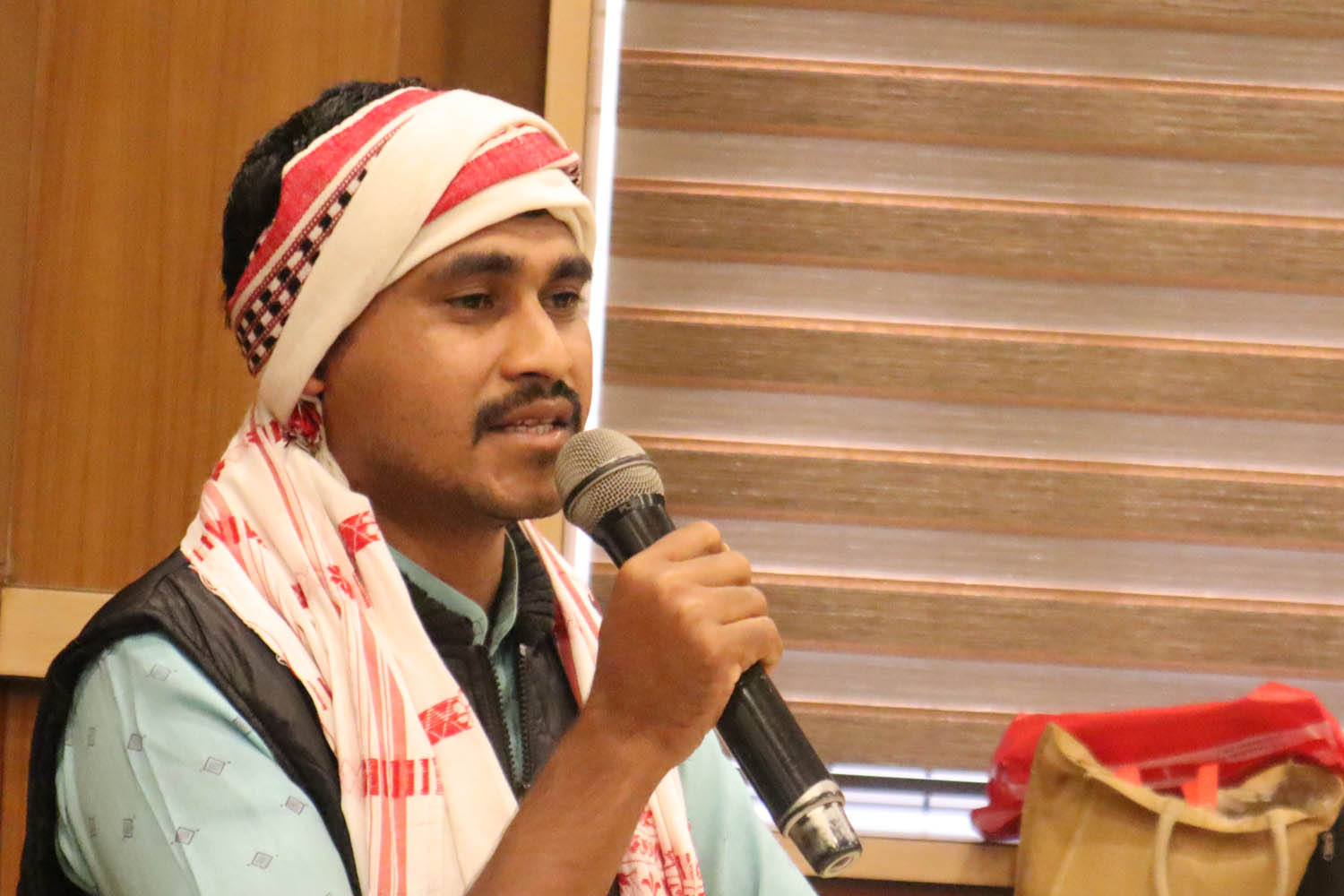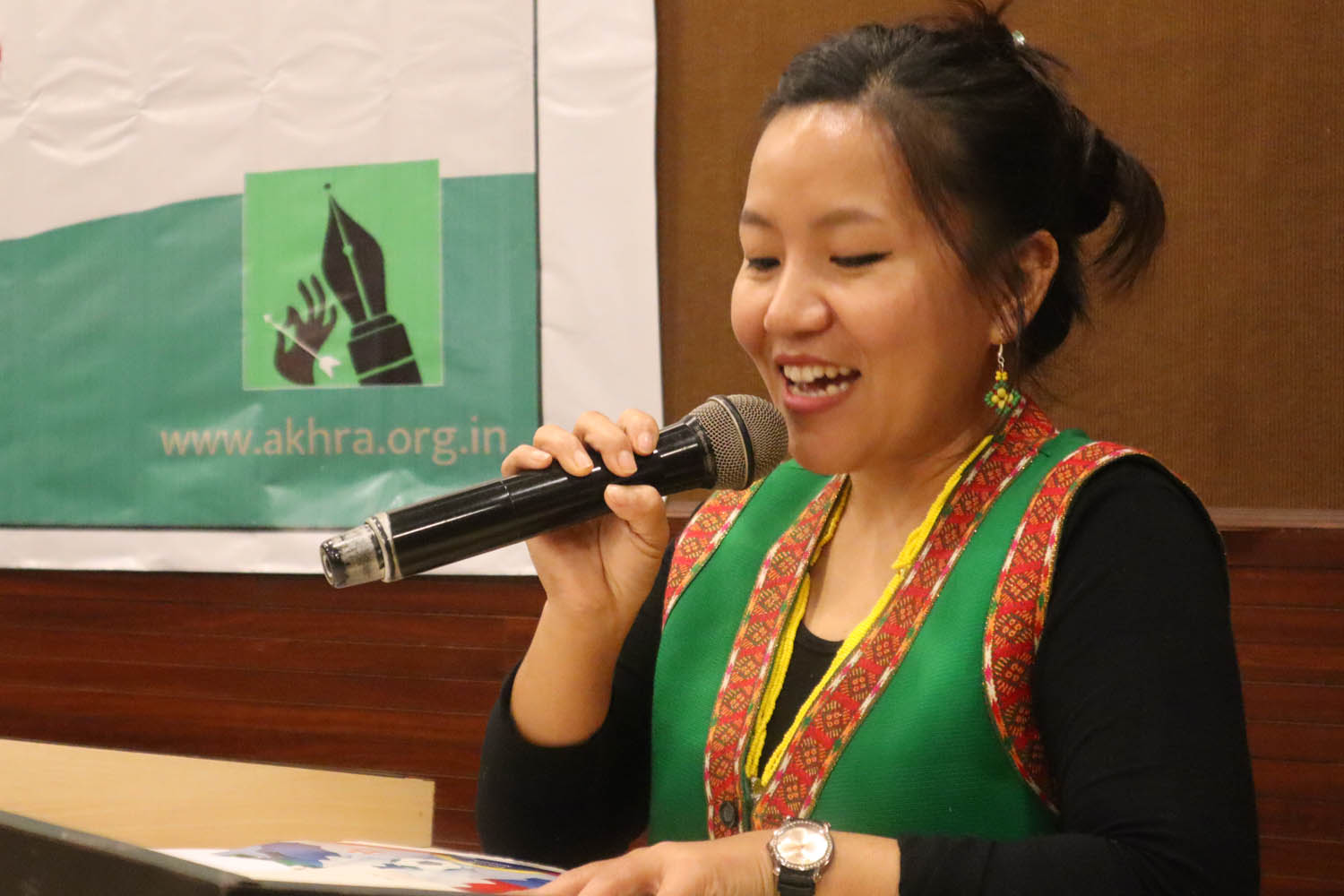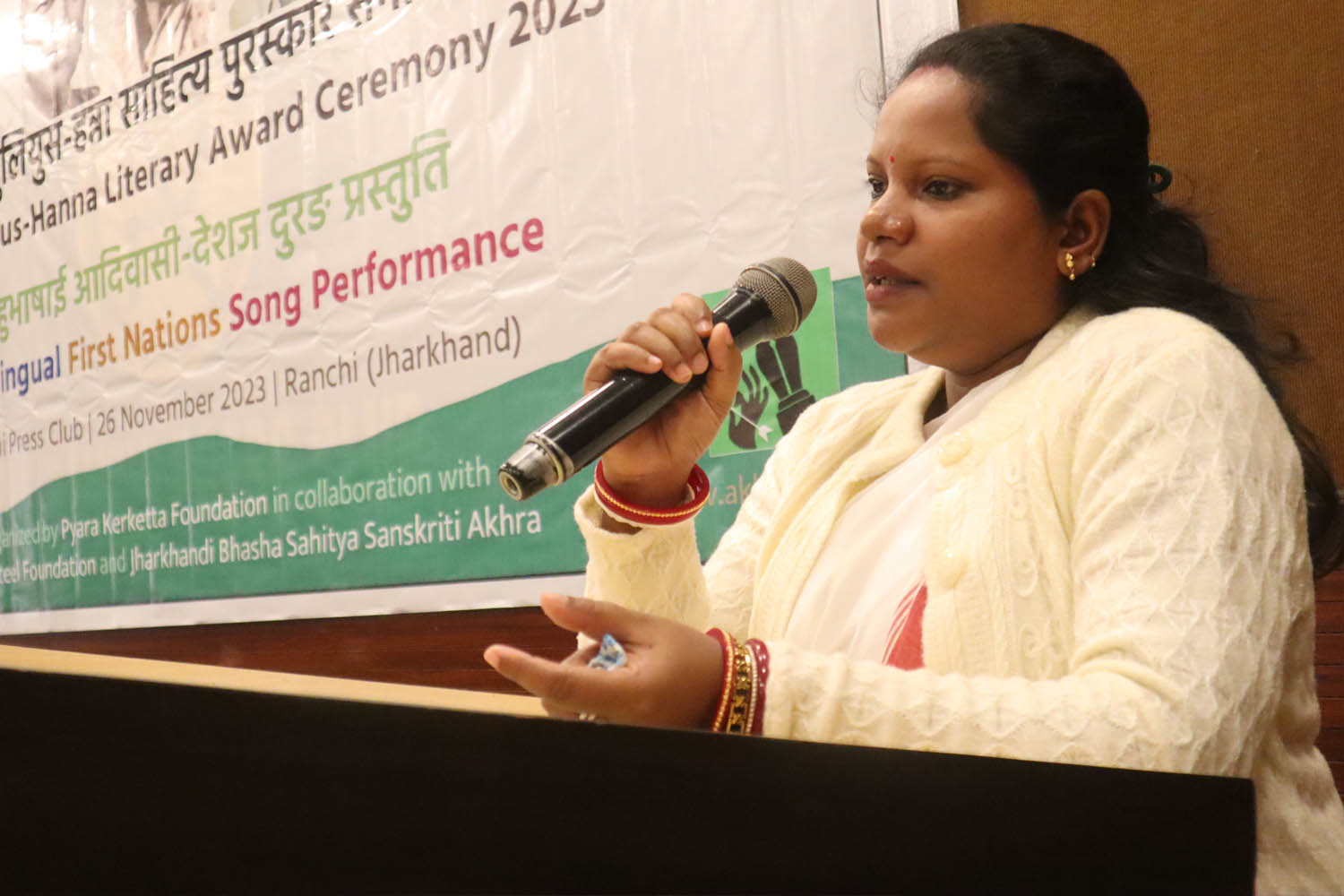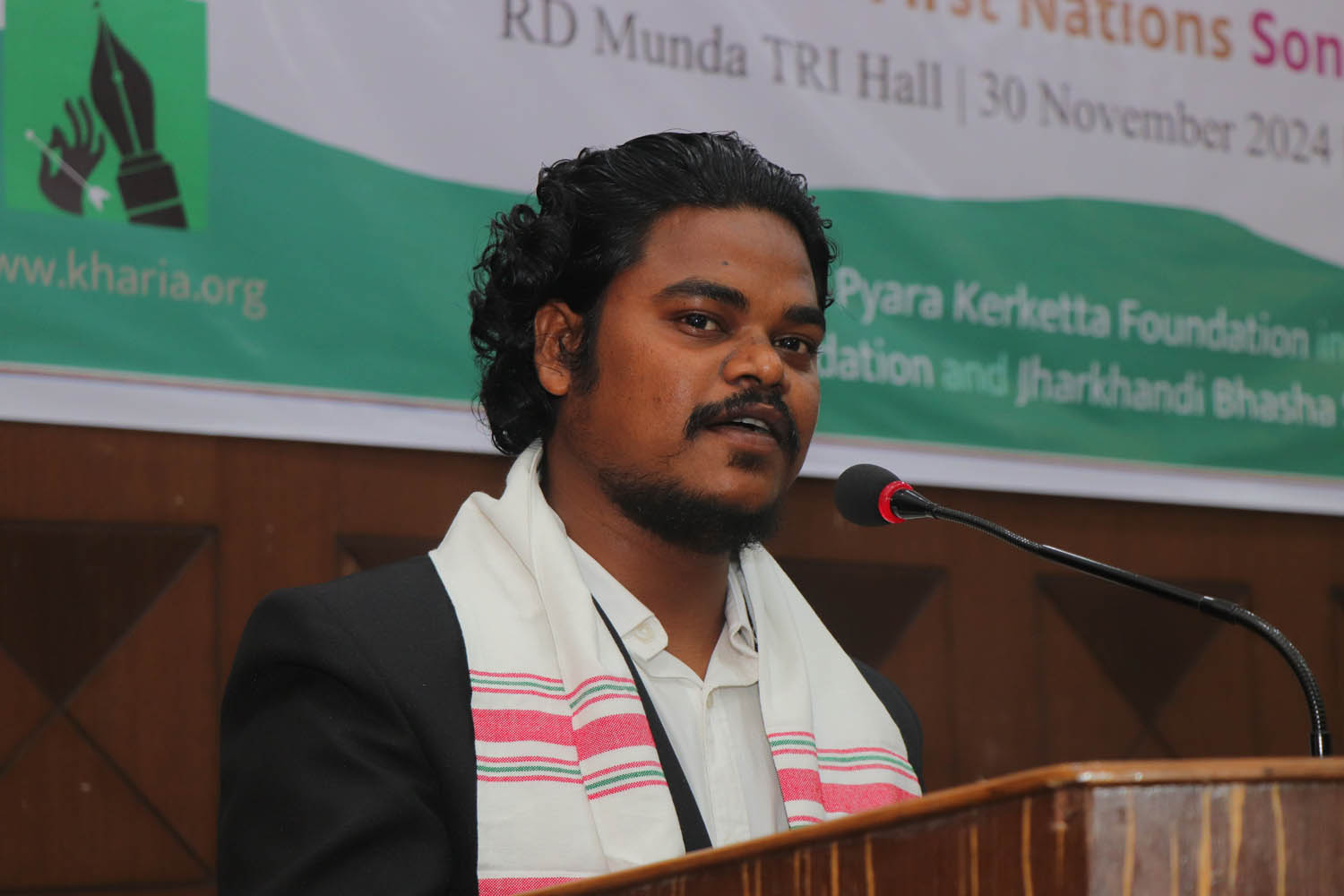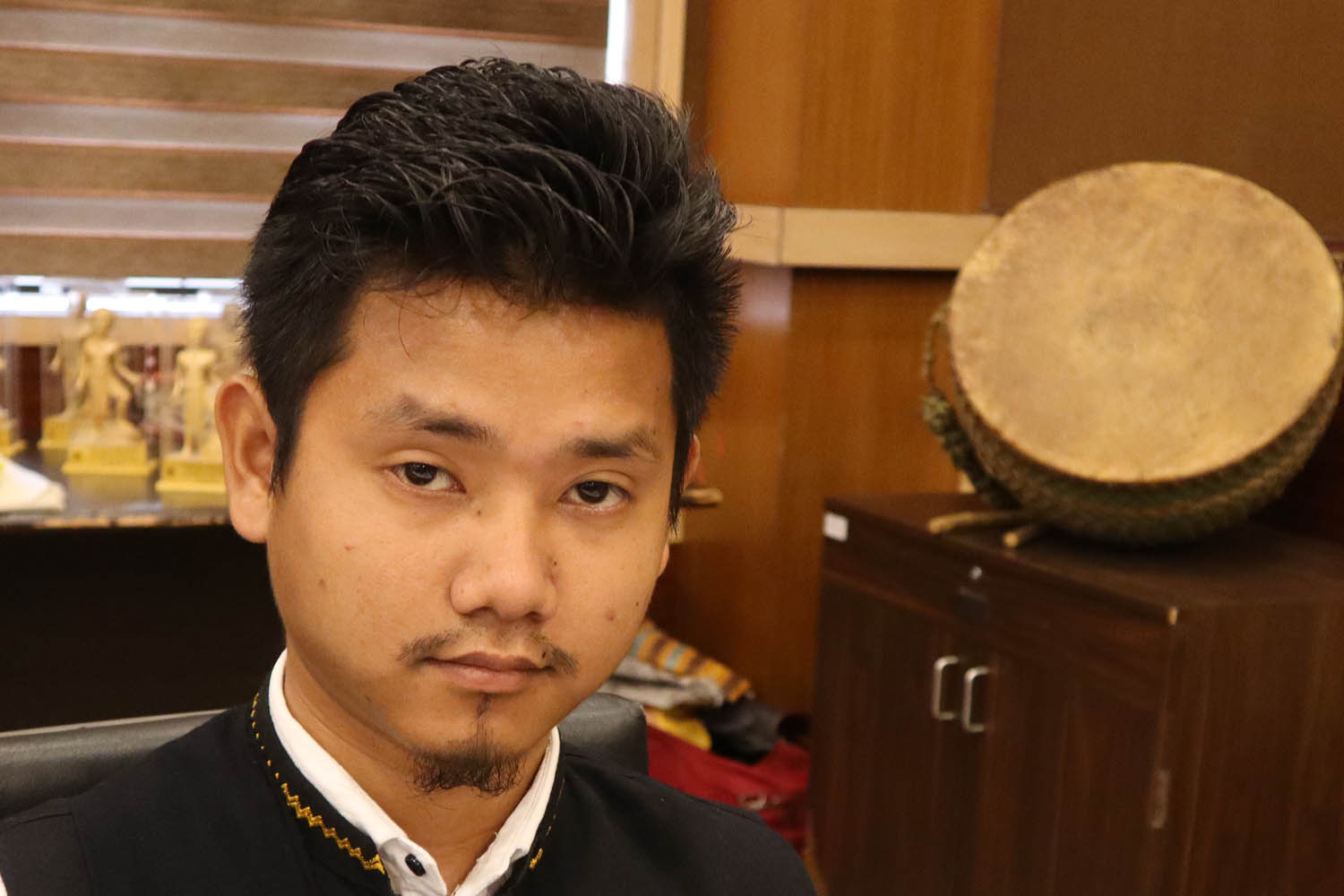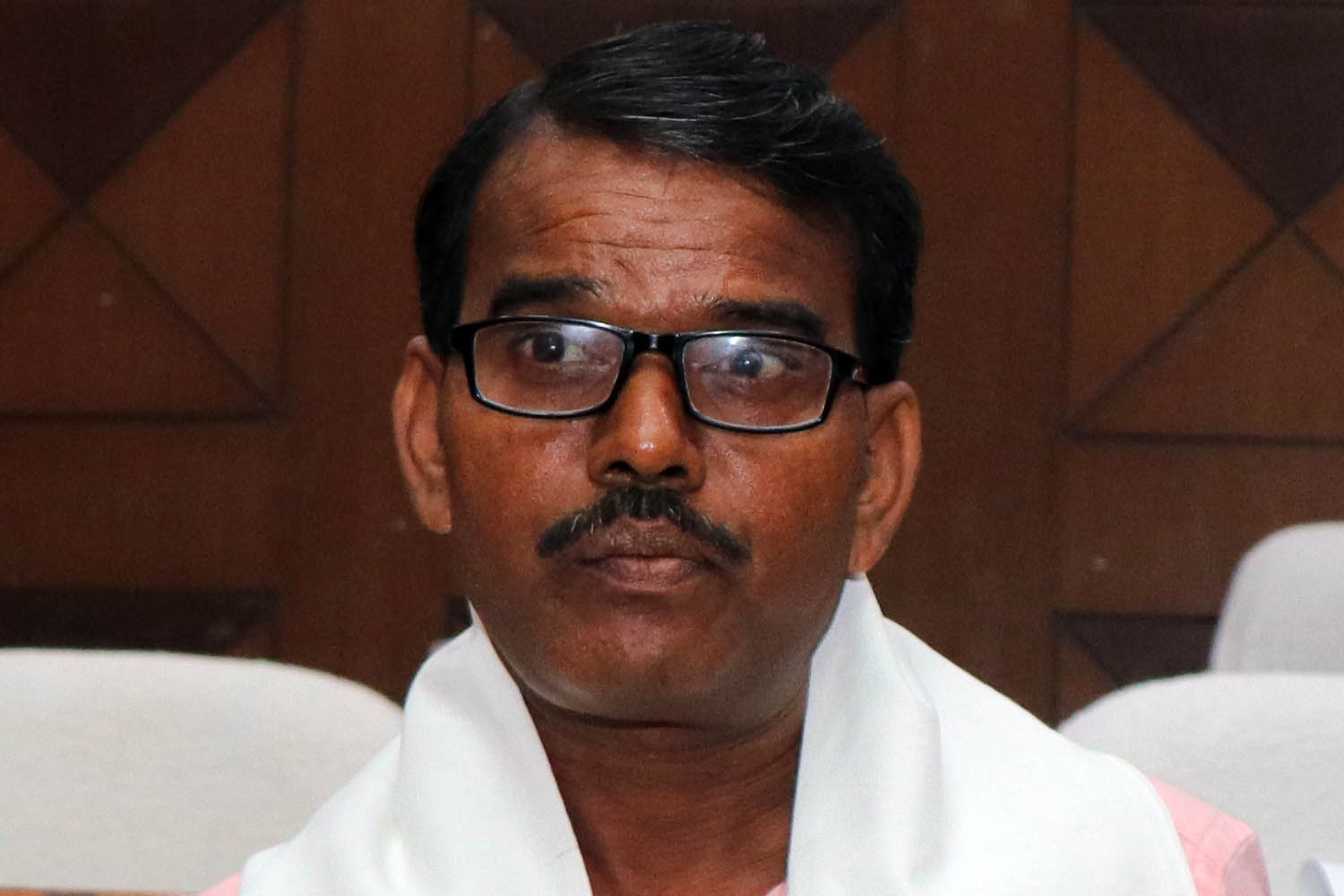JJHanna Awardee 2024
meet our past awardee
Shikha Minj
 Shikha Minj belongs to the Oraon Adivasi community and hails from Baghajot, Thanjhora Tea Garden, located in the Darjeeling district of West Bengal. Born on 7th March 1998 to Sumila Minj and Shankar Minj, Shikha grew up amidst the life and labour of tea plantations. She completed her schooling from Khoreebari J.R. Hindi High School, pursued her graduation from Kalipada Ghosh Terai Mahavidyalaya, and obtained a postgraduate degree in Hindi from the University of North Bengal. Shikha writes poetry in both Hindi and Sadri. Some of her poems have been published in the collection “Chai ki Siskian”
Shikha Minj belongs to the Oraon Adivasi community and hails from Baghajot, Thanjhora Tea Garden, located in the Darjeeling district of West Bengal. Born on 7th March 1998 to Sumila Minj and Shankar Minj, Shikha grew up amidst the life and labour of tea plantations. She completed her schooling from Khoreebari J.R. Hindi High School, pursued her graduation from Kalipada Ghosh Terai Mahavidyalaya, and obtained a postgraduate degree in Hindi from the University of North Bengal. Shikha writes poetry in both Hindi and Sadri. Some of her poems have been published in the collection “Chai ki Siskian”
(The Sobs of Tea) and in various magazines and journals. “Nirdan” is her first independent poetry collection — a powerful debut that marks her presence in contemporary Indian literature as a fresh, bold, and rooted voice. Nirdan is not merely a collection of poems — it is the voice of a new generation emerging from the tea gardens. These poems are born from lived experiences, from the soil of labour, displacement, language loss, and cultural assertion. Far more “refreshing” than the freshness of branded tea in advertisements, Nirdan offers readers a sharp and unsettling poetic experience — each sip fills you not with comfort, but with restlessness and reflection. The poems of Nirdan speak in a tone wrapped in calm, yet echoing a deep and piercing resistance. It is a poetic uprising — not through slogans, but through a quiet yet firm cultural assertion. Shikha's poetry either leaves readers speechless or ignites their voice — a voice that rises in support of tea garden workers, and in protest against the erasure of Adivasi history, language, culture, employment, and land.
If you would like to read this award-winning Sadri/Nagpuri poetry collection, please obtain it from here.
Vinod Motiram Atram
 Vinod Motiram Atram – a sensitive poet, farmer, and cultural representative of the Gond Adivasi community – was born on 1st January 1982 in Nanded district of Maharashtra. Deeply rooted in his land and traditions, he leads a humble yet reflective life. His mother is Renukabai Atram and father is Motiram Sambhaji Atram. He lives with his wife, Leelabai Atram, and together they are engaged in farming as a way of life. Vinod Atram completed his formal education up to the undergraduate level, but his true learning came from the forests, hills, rivers, and fields that surrounded his village. The natural world – with its birds, animals, and the rhythms of rural life – was his first school. It was
Vinod Motiram Atram – a sensitive poet, farmer, and cultural representative of the Gond Adivasi community – was born on 1st January 1982 in Nanded district of Maharashtra. Deeply rooted in his land and traditions, he leads a humble yet reflective life. His mother is Renukabai Atram and father is Motiram Sambhaji Atram. He lives with his wife, Leelabai Atram, and together they are engaged in farming as a way of life. Vinod Atram completed his formal education up to the undergraduate level, but his true learning came from the forests, hills, rivers, and fields that surrounded his village. The natural world – with its birds, animals, and the rhythms of rural life – was his first school. It was
only when he stepped out of this familiar landscape for college that he experienced a striking contrast between the traditional life he came from and the structured urban world of higher education. This shift led to a profound inner churning, which found expression through literature. “Hirwal Meta” is more than a book of poems – it is a testament to the Gond worldview, the intimate relationship with nature, the dignity of labour, the power of memory, and the spirit of community. Written in Gondi, a language long marginalized from India’s literary mainstream, this collection reclaims the right to narrate from the perspective of the forest-dwelling, land-tilling communities. It is for this powerful, grounded, and original voice that “Hirwal Meta” was awarded the Jaipal Julius Hanna Literary Award for 2024. The award recognises writers working in underrepresented languages and cultures, who bring fresh vision, authenticity, and commitment to their literary expression. “Hirwal Meta” was honoured for its deeply sincere portrayal of Gond life, its lyrical connection with land and landscape, and its culturally rich, emotionally resonant poetry.
If you would like to read this award-winning Gondi poetry collection, please obtain it from here.
Albinus Hembrom
 Albinus Hembram, born on 25th July 1995 in Paharpur village of Pakur district, Jharkhand, is an emerging Santali writer, poet, and social thinker. He is the son of Shri Sakal Hembram and Smt. Bahaphul Murmu. From an early age, he was deeply rooted in Adivasi culture, language, and nature-based values, which have shaped the foundation of his literary and social journey. His upbringing in a culturally rich environment nurtured a strong sense of identity, community, and heritage that reflects vividly in his writings and activism. Albinus Hembram has made significant contributions to the preservation and promotion of Santali language and culture. He is the co-author of the Hindi poetry anthology “Suryoday”, and his independent literary works have appeared in reputed journals.. He is also the editor of the Santali monthly magazine
Albinus Hembram, born on 25th July 1995 in Paharpur village of Pakur district, Jharkhand, is an emerging Santali writer, poet, and social thinker. He is the son of Shri Sakal Hembram and Smt. Bahaphul Murmu. From an early age, he was deeply rooted in Adivasi culture, language, and nature-based values, which have shaped the foundation of his literary and social journey. His upbringing in a culturally rich environment nurtured a strong sense of identity, community, and heritage that reflects vividly in his writings and activism. Albinus Hembram has made significant contributions to the preservation and promotion of Santali language and culture. He is the co-author of the Hindi poetry anthology “Suryoday”, and his independent literary works have appeared in reputed journals.. He is also the editor of the Santali monthly magazine
Marsalatabon, which serves as a vibrant platform for young writers and aims to strengthen the literary and cultural presence of the Santali language. His writings centre around themes like Adivasi worldview, memory of the community, deep connection with water-forest-land, and the dignity of the Santali language. He explores the space between tradition and modernity, creating a thoughtful dialogue in his works. For him, nature is not just a passive background but a living, breathing presence. He perceives language not merely as a tool of communication but as a means of self-preservation and cultural reconstruction. This creative vision finds its most mature expression in his Santali poetry collection “Sirjonre Jivedok” (meaning ‘The Life of Creation’), which has been awarded the Jaipal Julius Hanna Literary Award for the year 2024. This award honours originality, cultural commitment, and linguistic innovation in contemporary Adivasi literature. “Sirjonre Jivedok” stands out as a significant contribution to modern Santali poetry. The collection not only captures the intricate textures of Adivasi life but also pushes the boundaries of poetic form and Santali expression. Hembram’s poems carry the essence of collective memory, resistance, cultural survival, and dreams of a dignified future. His style is both accessible and profound, making his work a powerful medium of intergenerational conversation.
If you would like to read this award-winning Santali poetry collection, please obtain it from here.
All three of these writers bring to light the lives, struggles, and cultural heritage of the Adivasi communities in India. Their works are not only significant from a literary standpoint but also highlight the identity and the challenges faced by the tribal population, offering a true and nuanced portrayal of their world.
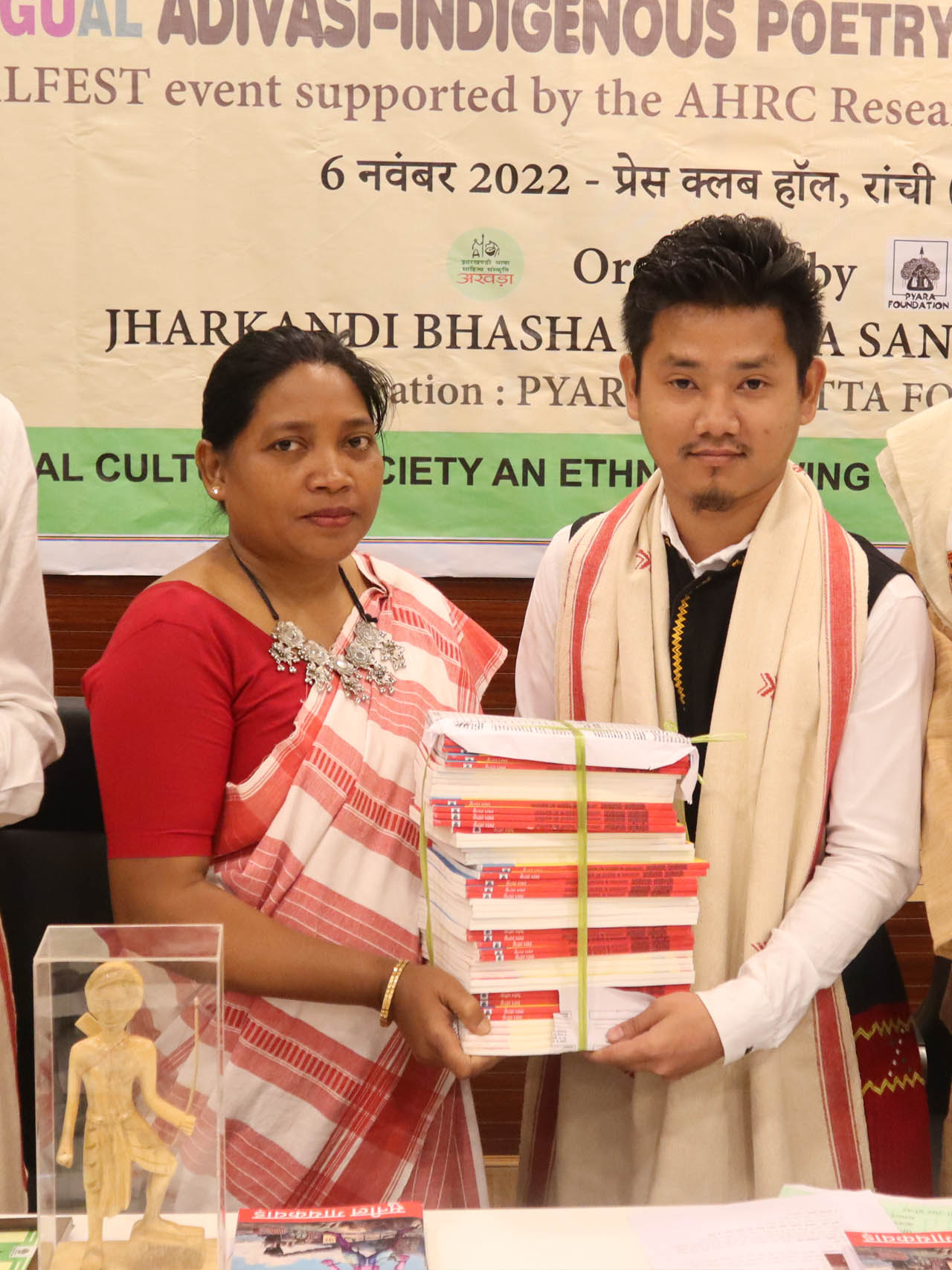
We’re - earthkeepers, creators of sustainability.
Over twenty years in the Adivasi literary world.
